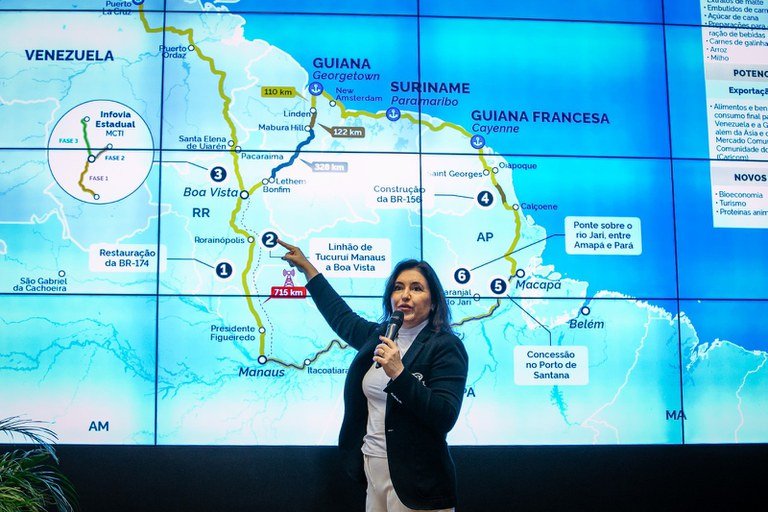
Initiative aims to strengthen economic and infrastructure ties with neighboring countries, boosting regional development.
In a strategic move to consolidate its presence and influence in South America, Brazil has announced the incorporation of all its 27 states into the ambitious South American Integration Routes (RISA) project. The initiative, inspired by the growing need to strengthen economic and infrastructure ties with neighboring countries, promises to transform transport logistics and boost development across the region.
The RISA project, which was already being outlined and implemented in some areas of the country, now gains new momentum with the full adherence of all federative units. This expansion demonstrates the federal government’s commitment to creating efficient multimodal corridors that facilitate the flow of goods, services, and people between Brazil and its South American partners.
Potential Economic and Infrastructure Impacts
The realization of the South American Integration Routes brings with it a wide range of economic opportunities. A significant increase in bilateral and multilateral trade is expected as transport costs are reduced and connectivity between markets is improved. Sectors such as agribusiness, industry, and tourism are expected to be particularly benefited.
From an infrastructure perspective, the RISA project will drive the need for investments in highways, railways, waterways, and ports, as well as in communication and energy systems. This demand for infrastructural development could generate new jobs and stimulate growth in various sectors of the economy.
Partnerships and Challenges
The successful implementation of the RISA project will require close collaboration between the federal government, state governments, and the private sector. Public-private partnerships (PPPs) are expected to play a crucial role in financing and executing infrastructure works.
Furthermore, the project will face considerable logistical and environmental challenges. Careful planning will be necessary to ensure the efficiency of transport corridors and to minimize negative impacts on the environment and local communities.
Vision of Regional Integration
The incorporation of all Brazilian states into the South American Integration Routes project reflects a long-term vision for regional integration. By investing in infrastructure and connectivity, Brazil seeks to strengthen its position as an important player in the South American scenario, promoting economic and social development throughout the region.
The expectation is that, in the coming years, the RISA project will become a tangible reality, transforming the landscape of South America and opening new frontiers for trade and cooperation among neighboring countries.
Sources:
- South American Integration Routes – Portal Gov.br
- Brazil strengthens South American integration with new investment agreement for strategic routes – Portal Gov.br
- IDB, BNDES, CAF, FONPLATA Announce US$10 Billion for Regional Integration Routes – IDB
- Brazil, China sign agreement to plan railroad to Peru | Agência Brasil










